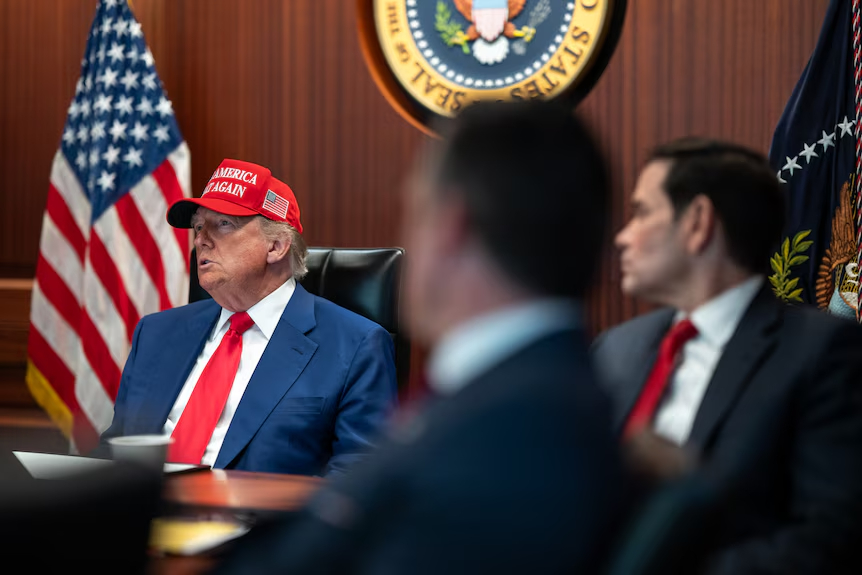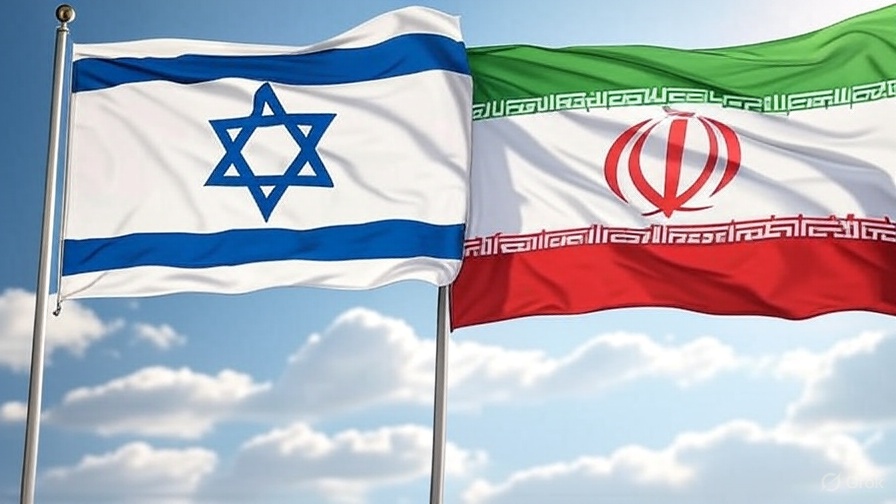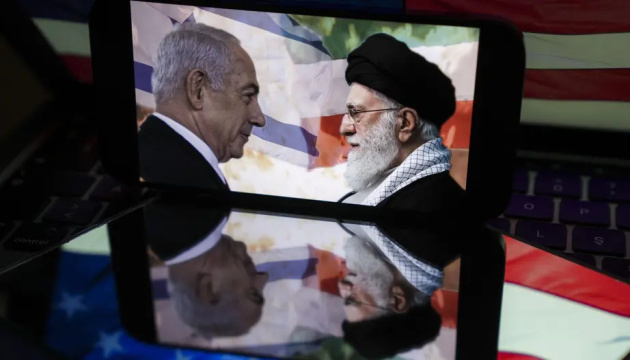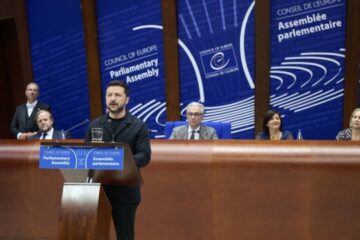The key question that still remains unanswered: is the region really on the verge of stability, or is this just the temporary lull before a new storm?
On June 23, Trump surprised the world by announcing the end to the 12-day war between Israel and Iran. The U.S. President said that the warring parties “almost simultaneously” turned to him with a request to assist in establishing peace and made it sure that they agreed to a ceasefire. Israel officially confirmed its agreement to a US-brokered bilateral ceasefire with Iran on Tuesday but warned it will “respond forcefully to any violation”, but no reports of a ceasefire being agreed upon with Israel have come in from Iran. Moreover, the next morning (Kyiv time) Iran attacked Israel, to which the IDF responded with a counterattack.
On Tuesday morning, Trump got to know the latest news from the Middle East and lashed out at Israel and Iran as the ceasefire deal he announced hours earlier appeared on the brink of collapse. “We basically have two countries that have been fighting so long and so hard that they don’t know what the f— they’re doing,” Trump said as he left the White House for the NATO summit in the Netherlands.” This was followed by a telephone conversation with Israeli Prime Minister Benjamin Netanyahu, who pledged that Jerusalem would refrain from further strikes on Tehran. Meanwhile, contacts between representatives of the United States and Iran were probably ongoing. The latter claimed that the missiles were launched a few minutes before the official start of the ceasefire, and therefore there was no violation on their part, and later they at all started making excuses that they did not launch anything or that it happened by mistake.
At the same time, the Iranian armed forces said they would continue monitoring the “enemy’s movements with “open and alert eyes”. Meanwhile, Ben Gurion Airport is set to reopen and resume full-fledged operation in a little while, and some foreign airlines have declared being ready to resume flights immediately.
How to interpret such “seesaws”?
A number of commentators have expressed the opinion that such fluctuations indicate that Trump is not taken seriously, but is rather perceived as a “mighty nothing.” This is despite that the day before, the U.S. Air Force launched an unprecedented strike with super-powerful GBU-57 bunker-busting bombs on three Iranian nuclear facilities – in Fordow, Natanz and Isfahan. However, according to our experts, the situation has changed dramatically: after the U.S. strike on Iran, dictators in totalitarian regimes again perceive Trump as a threat, and a belligerent threat at that.”

U.S. President Donald Trump alongside Secretary of State Marco Rubio // Photo via White House
THE WAR THAT HAS NEVER BECOME GREAT: DIPLOMACY OF MISSILES AND LIMITED OBJECTIVES
Diplomat Vadym Tryukhan believes that Iran did not expect such a powerful attack from Israel, and even less so the direct involvement in the conflict by the United States. The results achieved by the Israelis and Americans were so devastating that Tehran realized that this was not a demonstration of force, but a threat to the survival of the regime. Mr. Tryukhan comments: “For this reason, Iran is currently little interested in continuing hostilities.” He adds that Tehran has become convinced of the unwillingness of its conditional allies – China, Russia, North Korea – to promptly provide significant weapons or equipment aid. These players have proven unable or unwilling to risk the remnants of global stability and their relations with the United States for the sake of Iran’s interests. Thus, “Iran was left one-on-one with Israel and its powerful ally, the United States, and was forced to give serious consideration to the need for an immediate cessation of hostilities,” the diplomat summarizes.
A similar logic worked out for Israel. Despite the impressive results of the initial strike, Iran’s response was quite powerful, partially penetrating Israeli air defenses. There were civilian casualties and significant destruction of infrastructure. “Therefore, Israel too has little interest in dragging out the conflict,” argues Mr. Tryukhan. On top of that, Israel clearly saw the lack of international support for the idea of overthrowing the Iranian regime. Even the United States, despite its involvement, stated that the main objectives had been met and is calling for de-escalation. “That is why Donald Trump’s statement on a ceasefire and a cessation of hostilities, which he hailed as the end to the “twelve-day war,” looks quite realistic.”
Regarding the accusations that no one takes Donald Trump seriously, Vadym Tryukhan categorically disagrees with that allegation. He claims that the current development of events indicates the opposite. At least on the Middle East issue, Trump “literally slammed his fist on the table and demonstrated his readiness to use the entire military potential of the United States.” This happened despite skepticism both among allies and in the United States itself. “So, to say that Trump is “nothing” is simply not true anymore,” emphasizes Tryukhan. “It is quite possible that many world leaders – from Putin to Kim Jong-un and Xi Jinping – are seriously rethinking their attitude towards Trump. In their eyes, he is no longer a “blah-blah man,” but a leader capable of taking extreme actions – military operations, tough sanctions, political pressure. Trump has turned into a factor of fear for dictatorial regimes,” he adds. According to Tryukhan, Trump will not stop there, and the next topic he can take up in all seriousness will be Russia’s war against Ukraine.
International policy expert Yuri Bohdanov as well is convinced that the situation will gradually calm down, since “neither side – neither Israel nor Iran – can achieve maximum goals.” He especially singles out Iran, whose military capabilities have been fundamentally undermined. Israel, for its part, is in critical need of American ammunition, and a long-lasting war without American support is an unrealistic endeavor. A ground operation to overthrow the Iranian regime currently looks impracticable too, and the United States is not going to conduct it. At the same time, Donald Trump, true to form, “wants to get the fastest possible victory” and fix the result: Iran is not capable of making nuclear weapons anymore and cannot threaten the region. “And it was his rush to stabilize the ceasefire that led to the exchange of strikes between Israel and Iran,” the expert believes. “But at the same time, the U.S. capabilities and Israel’s reliance on the United States would not allow the latter to act independently. The same is true for Ukraine and Europe where it comes to their confrontation with Russia,” Mr. Bohdanov draws a parallel, summing it up: “So, it is quite obvious that the war will come to an end. But not due to Trump’s merits.”
International policy analyst Maxym Yali agrees that de-escalation has already taken place. He believes that the Iranian missile might well have been launched “mistakenly”, given Tehran’s interest in a ceasefire. Iran wanted to demonstrate to its population that they were not forced to make peace, but they could go against Trump’s will. “In general, I think everything will “settle down.” In fact, de-escalation has already taken place. After all, both sides have officially declared having agreed to a ceasefire, and so everything else is technical issues. And these suggests negotiations, which have already got underway,” the political analyst notes.
He also agrees that Israeli Prime Minister Netanyahu had little interest in ceasing hostilities until Iran surrendered. However, Israel, although it has not achieved all its objectives, sees that Trump has made it clear: the United States will not be fully involved in the war. And without the United States, Israel will not be able to completely destroy Iran’s nuclear potential, nor, even less, achieve the overthrow of the regime, which requires a ground military operation, which Trump has already ruled out.
However, Israel took control of the airspace, the allies were not eager to help, and Iran alone could not oppose the enemy. “Everyone saw that their missile technologies and the missiles themselves turned out to be far less effective as advertised. In addition, in the first days of Israel’s successful operation in Iran, the number of launchers was significantly reduced… That is, we can assume that they have almost exhausted their military capabilities. So the situation is a stalemate. And Trump has created an opportunity to get out of it,” Maxim Yali summarizes. Thus, within a few weeks, or maybe even sooner, the ceasefire may become established.
The political analyst also expresses doubt that Moscow will be able to use this negotiation track for its “gain.” “After all, Trump, when approached by Russia for mediation, blatantly rejected Russians’ “services.” He said, first stop the war in Ukraine, and then offer us your peacekeeping efforts,” Yali emphasizes. The analyst suggests that it was precisely because of Russia’s weakness that Iran agreed to the American terms of a truce and launched such a relatively weak strike in response to the U.S. attack on its nuclear facilities. “After all, it can be assumed that, in Moscow, the Iranian Foreign Minister was made it clear that Tehran should not pin high hope on any substantial military assistance from the Kremlin…” Therefore, Yali reiterates, all parties will “report on a ‘great victory,’ reap their political dividends, and leave it all until the ‘next episode of the series’”.

OUTCOME OF THE 12-DAY WAR: WHO WON WHAT AND WHAT’S NEXT?
The 12-day war between Israel and Iran was an intense, albeit relatively short-lasting conflict that have had significant consequences for all parties involved and for the region as a whole. An assessment of the preliminary outcomes allows us to better understand the new balance of power and predict further developments.
International policy expert Anatoly Maksymov notes that Israel has “fit into its two-week deadline and accomplished most of its missions.” According to him, the list of targets was exhausted by the latest series of strikes on Iran’s repressive system. “Iran’s nuclear program, if not fully destroyed, is hanging by a thread and is not currently a threat — an important victory over an adversary that is many times larger than Israel,” Maksymov emphasizes. Iran has suffered very strong political, military, and diplomatic defeats. “Its air defenses no longer exist, the leaders are either dead or in hiding, the nuclear program is on the verge of being terminated, most of the launchers have been destroyed, command and control system is in ruins. There is basically nothing to fight for anymore,” the expert states. Mr. Maksymov also suggests that “internally, the regime will begin taking revenge on its citizens (because it cannot take revenge on Israel), repressing dissenters even more severely.” However, if you understand the Middle East well, peace there is almost a swear word. “This is far from the end of the confrontation, perhaps not even the end of this conflict. Because a truce is another swear word,” Maksymov warns.
Ksenia Svetlova, an Israeli journalist, an ex-member of Knesset and senior fellow at the Atlantic Council, who covered the Middle East extensively during the last two decades provides her assessment of the interim results of the 12-day war.
Israel: “It took advantage of the most opportune moment when Iran’s air defenses were virtually nonexistent and the ‘ring of fire’ of regional proxies was significantly weakened,” Svetlova notes. Israel destroyed a significant portion of the launchers, ballistic missiles, and UAVs, as well as the factories where these were manufactured. It eliminated high-ranking IRGC and military leaders, as well as lead nuclear scientists. It drew the U.S. into the war and facilitated strikes on three nuclear facilities, where, most likely, “centrifuges or parts thereof were incapacitated.” It proved the absolute dominance of its air force in the skies over Iran and the inability of Iran or its allies to counteract this somehow or other. However, Israel suffered significant losses in country – about 100,000 people lost their homes, hundreds were injured, and 29 were killed.
Iran: The Iranian regime was not overthrown. “Nobody set such a goal, there was no operational plan, no one counted on it,” Svetlova emphasizes. It is difficult to assess at the moment the extent to which the regime has weakened and whether it will be able to cope with future attempted uprisings, but for now the ayatollahs continue holding power in their hands. It cannot be ruled out that Ayatollah Khamenei will be removed from power at a later time, but who will replace him is difficult to say now. Nuclear facilities were attacked, but the extent of the damage caused is not known exactly. Iran lost lead nuclear experts and experienced military personnel, “however, it is obvious that the skills and knowledge have not disappeared.”
Persian Gulf countries: They have experienced unpleasant moments, but generally remained unaffected. “Their bet on the United States has paid off, as has the diplomacy of recent years aimed at resetting relations with Iran,” Svetlova notes. Qatar has once again managed to become a mediator and “come out of the water dry.”
USA: “It has proven once again that it is the one leading the parade: if the goal was to overthrow the regime, it would have been achieved. It’s just that no one set such a goal,” Svetlova emphasizes.
Russia and China: They have mostly watched events from the sidelines, hoping that Trump will show mercy to their Iranian partners, but they may try to play some role in the upcoming negotiations. Russia has lost (at least temporarily) access to Iranian ballistic missiles and UAVs, as the factories that produced them have been either fully destroyed or severely damaged.
What’s next? Svetlova notes that Israel and the United States will have to figure out what exactly had been achieved in this war, the extent to which Iran’s nuclear and ballistic missile programs have been disabled, and what to do prevent them from being revived again. She argues that “between Trump’s ‘we destroyed everything’ and Iran’s ‘nothing happened’, there is a huge number of shades of yellow.” Further, negotiations are already looming on the horizon. The U.S. believes that Iran will now become far more concessive than it was before. Svetlova considers this unlikely, but admits that for the sake of preserving the regime, Tehran will have to show greater flexibility. “Although, most likely, it will again try to stall for time and preserve what remained of its nuclear program,” she adds. Svetlova emphasizes that no one is going to put up with Iran’s nuclear program anymore, but “no one is in a hurry to send soldiers to war with the aim of changing the regime and physically destroying this program either.” Therefore, “only after these aspects become clear can we speak with confidence about the onset of a ‘new era’ for the Middle East.”
CONCLUSION NOTES
It can be stated that the conflict in the region has entered an even more unpredictable phase. Trump’s statements about a ceasefire, albeit accompanied by “swings” and doubts, still reflect the reality: neither Israel nor Iran are currently interested in escalation. Iran has suffered significant losses, and Israel, despite the objectives met, has realized the limitations of international support for regime change in Tehran from the outside. The U.S. has finally demonstrated its willingness and readiness to act as a forceful arbitrator. For Ukraine, this situation carries both temporary advantages in the form of a potential reduction in Iranian weapons supplies to the Russian Federation, and the potential risk of Trump being pressuring for a “quick peace” at our expense.
Myroslav Liskovych, Kyiv
Headline photo: screengrab from FOX News




